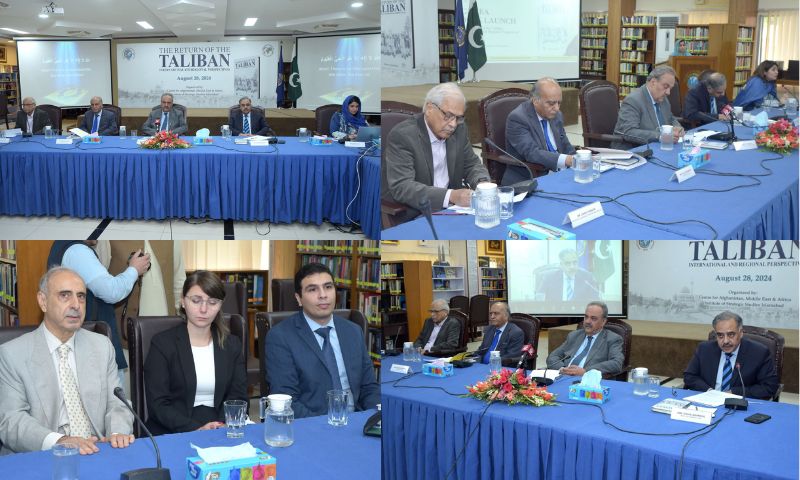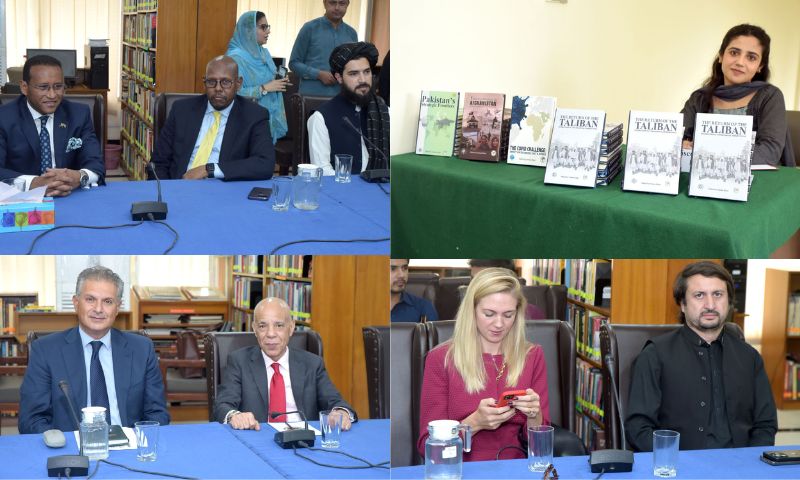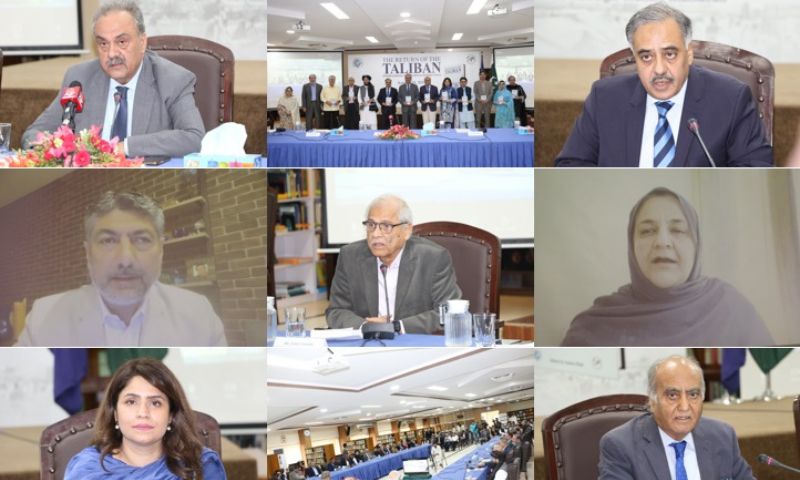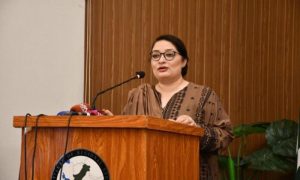ISLAMABAD: The Centre for Afghanistan, Middle East, and Africa (CAMEA) at the Institute of Strategic Studies, Islamabad (ISSI) launched its latest book, The Return of the Taliban: International and Regional Perspectives, edited by Amina Khan.
The event, held on Wednesday, featured Ambassador Asif Durrani, Pakistan’s Special Representative on Afghanistan, as the Chief Guest.
The launch was chaired by Mirza Ikhtiar Baig, MNA and Convener of the Pakistan-Morocco Parliamentary Friendship Group.
Ambassador Asif Durrani praised the ISSI for the book launch, noting that it provides valuable insights into Afghanistan’s governance since the Afghan Interim Government’s takeover in 2021.
He highlighted the importance of the book’s findings for policymakers and the security community, emphasizing the need for Afghanistan to address cross-border terrorism issues and noting that the book offers a refreshing intellectual resource on the country.
Ambassador Sohail Mahmood remarked on the book’s timely release, coinciding with the Taliban’s three-year rule. He said that the Taliban’s return marked a significant shift with wide regional and global implications.
Mahmood stressed the need for a stable Afghanistan for regional economic integration and connectivity, including initiatives like the China-Pakistan Economic Corridor (CPEC). He called for the interim government in Kabul to honor its Doha pledges, including inclusivity and non-use of Afghan territory against other nations, to enhance Pakistan-Afghanistan relations.
Amina Khan introduced the book, noting its significance as the Taliban’s governance approaches its third year. She described the Taliban’s rule as evolving into an authoritarian yet selectively pragmatic style, with progress in stability and diplomatic outreach. She urged the international community and the Islamic Emirate to ensure inclusive, accountable governance to achieve lasting peace.
Rangina Hamidi appreciated the book’s diverse perspectives and commented on the Taliban’s composition and its impact on the Pashtun people. She highlighted the critical importance of education and women’s rights, criticizing restrictions imposed by the Taliban while advocating for continued international engagement.

Ambassador Omar Samad discussed Afghanistan’s complex nature, as depicted in the book, emphasizing its multi-ethnic society, strategic significance, and historical role as a crossroads for trade and ideas. He called on the Islamic Emirate leadership to pursue stability and prosperity.
Zahid Hussain noted the book’s timely relevance, reflecting on the Taliban’s return to power and its implications for Afghanistan and Pakistan. He emphasized the need for cooperation between the two countries, particularly on issues like the TTP, and stressed that the Taliban must evolve to gain international recognition.

In his concluding remarks, Ambassador Khalid Mahmood praised the book for providing a comprehensive view of Afghanistan, making a valuable contribution to current discourse. The event was attended by academics, practitioners, foreign diplomats, civil society members, and media representatives.
Attendees included Syed Naveed Qamar, Shaista Pervaiz, Aijaz Hussain Jakhrani, Rana Muhammad Qasim Noon, Khursheed Ahmed Jonejo, Makhdoom Syed Sami ul Hassan Gillani, and Sabheen Ghoury. Distinguished speakers included Ambassador Sohail Mahmood, Director General of ISSI; Ambassador Khalid Mahmood, Chairman of the ISSI Board of Governors; and Ms. Amina Khan, Director of CAMEA.






















